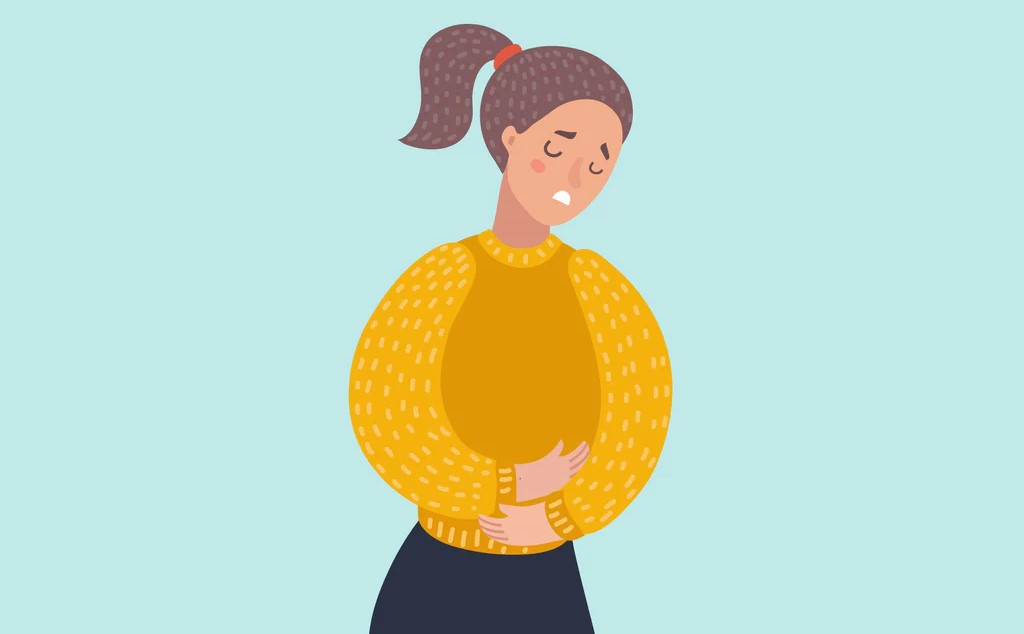# Banishing the Bloat: A Friendly Guide to Taming Gas and Discomfort
## I. Introduction to Gas and Bloating: Understanding the Basics
Picture this: you’re at a fancy dinner or enjoying a night out with friends when suddenly, your stomach starts to resemble a balloon ready to pop. We’ve all been there. Gas and bloating aren’t just uncomfortable—they can be downright embarrassing. But fear not! This discomfort is a common digestive issue that most people experience at some point in their lives.
So, what’s really happening down there? Gas is a normal byproduct of digestion, produced when bacteria in your large intestine go to town on the carbohydrates that haven’t been digested in your small intestine. Bloating, on the other hand, involves the feeling of a swollen or enlarged belly, often due to gas, but sometimes it can be due to other factors like water retention or changes in the digestive system.
## II. Dietary Adjustments to Reduce Gas and Bloating
First things first—let’s talk about tweaking your chow routine to keep that gas at bay. Here are some foodie tips:
– **Slow Down, Speedy**: Eating too quickly can make you swallow air, leading to gas. Take your time, chew thoroughly, and enjoy your meal.
– **Watch Your Intakes**: Some foods are notorious for creating gas. These include beans, lentils, carbonated drinks, onions, broccoli, and dairy for those who are lactose intolerant. Identify culprits and consider reducing them in your diet.
– **Fiber is Your Friend, But Don’t Overdo It**: Gradually increase your fiber intake. Going from zero to hero on the fiber front can cause a gas crisis.
– **Stay Hydrated**: Drink plenty of water throughout the day to help digestion and reduce the chances of constipation, which can make bloating worse.
## III. The Role of Probiotics in Alleviating Digestive Discomfort
Probiotics are the good guys—the beneficial bacteria that live in your gut and help keep your digestive system running smoothly. They can improve gut health and lead to less gas and bloating. These helpful microbes can be found in fermented foods like yogurt, kefir, sauerkraut, and kimchi, or in probiotic supplements. Just be sure to consult with a healthcare provider before starting any new supplement regimen.
## IV. Effective Over-the-Counter Remedies for Gas Relief
Sometimes, you need a little extra help to combat gas, and that’s where over-the-counter remedies come into play:
– **Simethicone**: This is found in products like Gas-X and can help break up gas bubbles, making them easier to pass.
– **Lactase Enzymes**: For those who are lactose intolerant, taking lactase enzyme supplements before eating dairy can help prevent gas and bloating.
– **Activated Charcoal**: Some people find that activated charcoal supplements can absorb excess gas in the digestive tract, though the evidence is mixed on its effectiveness.
Remember, it’s always wise to check with a healthcare professional before using these remedies to ensure they’re appropriate for your situation.
## V. Natural Home Remedies to Eliminate Bloating
Feeling like a DIY guru? There are several natural remedies you can try at home:
– **Peppermint Tea**: This refreshing beverage has a natural antispasmodic effect on the muscles of the digestive system, which can help reduce bloating.
– **Ginger**: A powerhouse of digestive benefits, ginger can help alleviate gas and bloating. Try it in tea, or grate some into your cooking.
– **Fennel Seeds**: These little seeds can be chewed after meals to aid digestion and freshen your breath at the same time.
## VI. Importance of Exercise and Physical Activity for Digestive Health
Let’s get moving! Regular exercise isn’t just great for your overall health—it’s also a boon for your digestive system. Physical activity helps stimulate the intestines and can improve bowel function, reducing the chances of constipation and the bloating that goes with it. Even a brisk walk after a meal can do wonders.
## VII. When to See a Doctor: Recognizing Signs of Serious Digestive Issues
While gas and bloating are usually harmless, it’s important to know when to seek medical advice. If you’re experiencing severe or persistent symptoms, or if they’re accompanied by weight loss, diarrhea, vomiting, or heartburn, it’s time to call the doc. These could be signs of a more serious digestive condition, such as irritable bowel syndrome (IBS), celiac disease, or even gastrointestinal obstructions.
Wrapping it up, remember that gas and bloating are usually no big deal but can sometimes signal something more serious. By making some dietary adjustments, trying probiotics, considering over-the-counter remedies or natural home solutions, and keeping active, you can help keep your digestive system happy and reduce uncomfortable symptoms. However, don’t hesitate to reach out to a healthcare professional if you’re concerned about your symptoms. With these tips in your back pocket, you can say goodbye to bloating and keep on beaming with good health!

